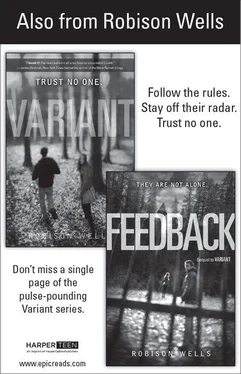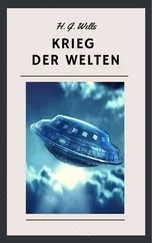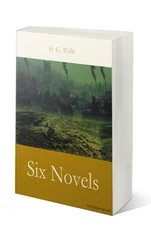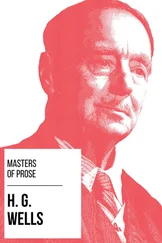She held up her hands, as though to stop an inevitable question.
“You might hate me for saying this, but you’re the lucky ones. Everyone in this room has symptoms that can be beneficial and lack symptoms that are too detrimental to function. There are people out there who are so debilitated by this virus that they are only surviving in a hospital.”
Jack—the boy who had sat in the cell across from Laura’s—raised his hand. “I don’t get it. You’re saying we’re not to blame, we’re the healthiest ones—so why do you have us here?”
Another man stepped forward. Judging by the sheer number of pins on his chest, he looked to be the highest-ranking person in the room. He strode to the podium and took it with both hands.
“Because it’s time to fight fire with fire. What’s your name, son?”
“Jack Cooper.”
“Oh, yes. Jack, you’ve been designated as having hypersensitivity. I’m told that you can see in the dark, can hear through soundproof glass, can read a book from a hundred feet away, and can hear a heartbeat from fifty yards, through a brick wall. Is that correct?”
“More or less,” Jack said.
Laura was impressed. That was something that would have been useful on their team.
“Well, imagine the other team has someone like you. Don’t you think we’d want to even the odds?”
Jack sat down and the girl next to him leaned into him a little bit.
Laura felt an unexpected pang of loneliness. She’d had friends. Well, Dan had been a friend. Alec had been an arrogant boss. Still, it’d be nice to have someone to talk to.
“Here’s the deal,” the man said. “You all have a bracelet attached to your legs. That’s because, despite our best efforts, we can’t confirm one hundred percent that you’re not terrorists—or that you won’t become terrorists. You are living weapons and our intel suggests the real terrorists are all American citizens—kids, just like you. On the other hand, you can be extremely helpful to our cause.
“So, if you want in, we’ll take you. We train you the best we can, but our priority will be getting you out on the battlefield as quickly as possible. This is not because we don’t care what happens to you. It’s because every day that goes by we are losing this war. We need to get things back under control.
“We can’t guarantee your safety, nor can we guarantee you’ll even make it out of training and into combat. If you sign up, you’ll be treated as a soldier—a special soldier, but a soldier nonetheless. You may or may not have weapons, depending on how much time we have to train you and what role you’re assigned. You’ll be a part of a team, and not just any team. You’ll be a part of the army special forces—the Green Berets.
“Anyone who chooses to be part of this, stand up now. This isn’t a draft. If you don’t want in, you’ll be returned to the rooms you just came from and you’ll be under guard until this war is over and we can figure out how best to treat this virus.”
There was a long pause, and Laura realized that he was waiting.
A boy near the front stood up, and then the guy next to him. In a moment, five more followed.
She joined them, and even let her smile show through a tiny bit. It was exactly what she’d wanted. She was on the inside.
A few more got to their feet. Others talked.
After a moment, Jack stood, and then the girl beside him did as well.
JACK KNELT ON A DARKhillside, watching the broad field in front of him. He was getting better every day, and his eyes almost felt like machines now—like he could tweak the settings, zoom, focus, adjust for lighting, filter through smoke. He was no longer Jack the high school janitor; he was Jack the human telescope, the human microphone, the human sensor.
They were all stupid powers, really. They’d make a terrible comic book. But it was so incredible, so different. So not him.
Beside him on the hillside was a spotter with a headset and a scope, and behind him was an officer. Somewhere in the field a sniper was approaching. The sniper was a Green Beret, among the highest-trained soldiers in the United States Army, yet Jack knew exactly where he was, had been tracking him for the better part of three hours.
It had taken a while to find him. There was a light breeze that made all the brush sway in the desert wind, and Jack had to struggle to pick the camouflaged man out of the background. Still, he’d done it without binoculars and without night-vision goggles.
Jack was supposed to report the sniper as soon as he saw him, but he was holding out now, just for fun. It was nearing the end of his training.
“Anything?” the spotter beside him finally said. “Time’s almost up.”
“Are we done?” Jack asked.
“Only if you’ve found him,” the spotter said. “Wait. Are your eyes closed?”
Jack smiled, and cracked open one eye to see the spotter. “Yep. But not to show off.”
Jack opened both eyes and clambered to his feet. He was sore from crouching. He was sore from a week of training that he had been completely unprepared for.
“ This is to show off, though. Sorry.” Jack pointed across the desert. “He started somewhere near that small hill. He scooted, facedown, for a good two hundred yards in a south, southeast direction. When he reached that taller brush, he crawled on his hands and knees. He paused for several minutes—I almost thought I’d lost him; you guys are good at controlling your breathing—and then took a lateral course over to that dry creek bed. He ate something there, or maybe just started chewing gum. He also drank, probably a fourth of his canteen. Then he headed up the creek bed on his stomach for a long time, at least an hour. Then he came out, and he’s trying to get into position now to take the shot.”
The spotter looked stunned. “You did that with your eyes closed?”
“There was too much movement out there in the wind. Every bush and little tree looked like a strobe light each time a gust of wind shook their leaves. So, I closed my eyes and listened and smelled. Our sniper has a pretty strong deodorant, and I think he’s got moleskin on some blisters—some kind of foot ointment.”
The officer, who had been quiet up to this point, stepped forward. “You’re not supposed to be playing games. You were supposed to identify him as soon as you saw—smelled—him.”
“I told you when I first found him. Besides, I’m not going to get any better if you keep giving me easy tasks like ‘find the guy in the bushes.’”
“Well, Lambda, your training is almost over. You’ve been an exemplary recruit but I’m concerned about your abilities to follow orders.”
“It was just a—”
“You’re impressive, Lambda,” the officer said, “but there’s a hell of a lot more to soldiering than finding enemy snipers. I’d advise you to get your head together. Start calling your commanders ‘sir’ and learn a little bit of decorum. Otherwise, you’re going to get yourself or someone else killed. Do I make myself clear?”
“Yes, sir,” Jack said.
“Good. We have one final test for you. No showing off this time. It’s important.”
ALEC STOOD IN A LONGline of people. At the front it was organized and single file, but the farther back it went the more it became a mob. The desert sand bit at his face, but he ignored it. After three hours of standing and shoving he was finally nearing the fence, and the steel-and-barbed-wire passage that left the quarantine zone.
He was worried that someone would recognize him here: he’d gone through twenty-three girls in the camp, looking for cell phones and then cell phone chargers and maps and any other contraband he could talk them out of. Only four of them had anything to scrounge, and most of it was useless. Of the three phones he’d found, two worked, and just one managed to get a weak signal all the way out here.
Читать дальше












